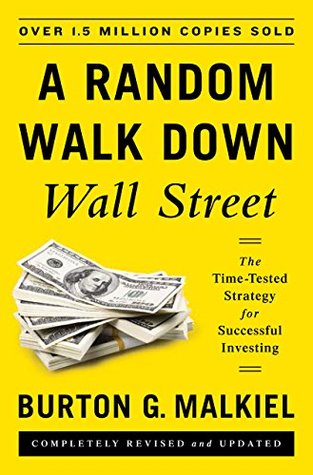More on this book
Community
Kindle Notes & Highlights
Read between
May 8 - June 8, 2017
corporations have life cycles similar to most living things.
Such changes in valuation are not extraordinary—these are the routine fluctuations in market sentiment that were experienced in the past. Not only can the average multiple change rapidly for stocks in general, but so can the premium assigned to growth. Clearly, then, one should not take the success of fundamental analysis for granted.
rules: Look for growth situations with low price-earnings multiples. If the growth takes place, there’s often a double bonus—both the earnings and the multiple rise, producing large gains. Beware of very high multiple stocks in
This illusion of financial skill may well stem from another psychological finding, called hindsight bias. Such errors are sustained by having a selective memory of success.
Even if the investor believed that his losing stock would recover in the future, it would pay to sell the stock and purchase a stock in the same industry with similar prospects and risk characteristics.
Arbitrageurs can simply sell the overpriced security short and buy a similar substitute oil company security. Thus, the arbitrageur is hedged in the sense that favorable or unfavorable events affecting the oil industry will influence both companies. A rise in the price of oil that makes the shorted security rise will make the arbitrageur’s long position rise as well.
in the game of amateur tennis, most points are won not by adroit plays on your part but rather by mistakes on the part of your opponent.
The poor performance starts about six months after the issue is sold. Six months is generally set as the “lock-up” period, where insiders are prohibited from selling stock to the public. Once that constraint is lifted, the price of the stock often tanks.
sum, real estate has proved to be a good investment providing generous returns and excellent inflation-hedging characteristics.
you want to move your portfolio toward terra firma, I strongly suggest you invest some of your assets in REITs.
Two reasons are offered for such behavior—one serves shareholders and the other management. The shareholder benefit was created by tax laws. The tax rate on realized long-term capital gains has often been only a fraction of the maximum income tax rate on dividends.
The point is not to invest with a rearview mirror projecting double-digit returns from the past into the future. We are likely to be in a low-return environment for some time to come.
There are two times in a man’s life when he should not speculate: when he can’t afford it, and when he can.
But now for the final exam: If you expect to be a net saver during the next five years, should you hope for a higher or lower stock market during that period? Many investors get this one wrong. Even though they are going to be net buyers of stocks for many years to come, they are elated when stock prices rise and depressed when they fall. In effect, they rejoice because prices have risen for the “hamburgers” they will soon be buying. This reaction makes no sense. Only those who will be sellers of equities in the near future should be happy at seeing stocks rise. Prospective purchasers should
...more
Every year (no more than once a year) the asset mix was brought back to the 60–40 initial allocation.
the Talmud, Rabbi Isaac said that one should always divide one’s wealth into three parts: a third in land, a third in merchandise (business), and a third ready at hand (in liquid form).
The Wilshire 5000 Index contains all publicly traded U.S. common stocks. The Russell 3000 and MSCI Index contain all but the smallest (and much less liquid) stocks in the market.
Remember also that I am assuming here that you hold most, if not all, of your securities in tax-advantaged retirement plans. Certainly all bonds should be held in such accounts. If bonds are held outside of retirement accounts, you may well prefer tax-exempt bonds rather than the taxable securities.
I agree with John Bogle, founder of the Vanguard Group, who says, “Investors cut their own throats when they trade ETFs.”
The chart above shows that an investment in the VTSMX (the Vanguard Total Stock Market Fund)


